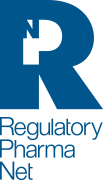Over the past few years, the use of Artificial Intelligence (AI) in pharmaceutical industry is rapidly expanding.
AI is a technical and scientific field devoted to the engineered system that generates outputs such as content and decision for a given set of human-defined objectives. It utilizes systems and software that can interpet and learn from the input data to make indipendent decisions.
AI is increasingly being utilized in various aspects of pharmaceutical industry, such as regulatory affairs, to enhance efficiency, improve decision making, and stemline processes. Despite the fact that AI use in RA activities is still in its infancy, a regulatory innovation is already taking place thanks to automation.
There are a lot of areas where use of AI can bring value to regulatory affairs such as:
- Entity extraction and custom classification: extraction of key elements from regulatory documents, creating relevant tags and analyze large amounts of data to find patterns and links otherwise impossible for humans
- In-document search and summarization: keyword search and summarization for complex and detailed regulatory documents.
- Content Authoring: authoring of regulatory documentation such as summaries and generation of structured data from clinical databases.
- Analysis of data to derive insights: match past responses to health authority questions with suggested relevant documents, identify patterns in agency requests for further information.
- Regulatory Compliance: assessing and analysing regulations guideline
AI’s integration into regulatory affairs is transforming the pharmaceutical industry by improving efficiencies and reducing time to market for new drugs. While challenges remain, particularly in terms of data security and system integration, the potential benefits of AI in regulatory affairs are immense. As pharmaceutical companies continue to embrace these technologies, the industry can expect to see significant improvements in regulatory processes.
RPN is ready to provide further updates on this topic and is available to provide full support for Regulatory Affairs activities.
References:
- EU AI Act: first regulation on artificial intelligence. European Parliament, 14-Jun-2023 (Internet) Available from: < https://www.europarl.europa.eu/news/en/headlines/society/20230601STO93804/eu-ai-actfirst-regulation-on-artificial-intelligence > (Accessed 16 Jun 2023)
- Askin S et al, 2023. Artificial Intelligence Applied to clinical trials: opportunities and challenges. Health Technol (Berl). 2023;13(2):203-213 (Internet) Available from: < doi: 10.1007/s12553-023-00738-2 > (Accessed 16 Jun 2023)
- US FDA, 2023. Artificial Intelligence and Machine Learning (AI/ML) for Drug Development (Internet) Available from: < https://www.fda.gov/science-research/scienceand-research-special-topics/artificial-intelligence-and-machine-learning-aiml-drug development > (Accessed 05 Jun 2023)
- Sushma JK et al, 2023. Regulatory Innovation in Artificial Intelligence for Accelerated Medication. JCLMM 1/11 (2023), 1971-1979 (Internet) Available from: < View of Regulatory Innovation in Artificial Intelligence for Accelerated Medication (jclmm.com) > (Accessed 09 Jun 2023)




